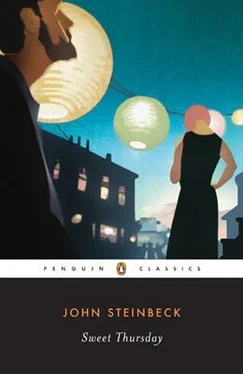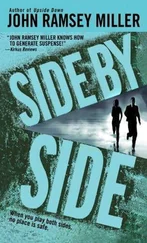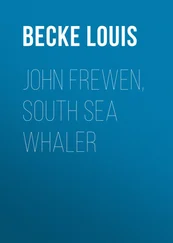John Steinbeck - Sweet Thursday
Здесь есть возможность читать онлайн «John Steinbeck - Sweet Thursday» весь текст электронной книги совершенно бесплатно (целиком полную версию без сокращений). В некоторых случаях можно слушать аудио, скачать через торрент в формате fb2 и присутствует краткое содержание. Год выпуска: 2008, ISBN: 2008, Издательство: Penguin Classics, Жанр: Классическая проза, на английском языке. Описание произведения, (предисловие) а так же отзывы посетителей доступны на портале библиотеки ЛибКат.
- Название:Sweet Thursday
- Автор:
- Издательство:Penguin Classics
- Жанр:
- Год:2008
- ISBN:1-4362-4126-X
- Рейтинг книги:5 / 5. Голосов: 1
-
Избранное:Добавить в избранное
- Отзывы:
-
Ваша оценка:
- 100
- 1
- 2
- 3
- 4
- 5
Sweet Thursday: краткое содержание, описание и аннотация
Предлагаем к чтению аннотацию, описание, краткое содержание или предисловие (зависит от того, что написал сам автор книги «Sweet Thursday»). Если вы не нашли необходимую информацию о книге — напишите в комментариях, мы постараемся отыскать её.
Cannery Row
Sweet Thursday — читать онлайн бесплатно полную книгу (весь текст) целиком
Ниже представлен текст книги, разбитый по страницам. Система сохранения места последней прочитанной страницы, позволяет с удобством читать онлайн бесплатно книгу «Sweet Thursday», без необходимости каждый раз заново искать на чём Вы остановились. Поставьте закладку, и сможете в любой момент перейти на страницу, на которой закончили чтение.
Интервал:
Закладка:
“Don’t ever gather disciples,” said Doc. “They’d have you on a cross in no time.”
“There’s not much danger of that. I don’t teach anybody anything.”
“I’m not so sure,” said Doc. “The doctrine of our time is that man can’t get along without a whole hell of a lot of stuff. You may not be preaching it, but you’re living treason.”
“I’m lazy,” said the seer. “Did you ever drink yerba buena tea?” [54] yerba buena tea: Yerba buena (Clinopodium douglasii) is a sprawling aromatic herb of the western and northwestern United States, western Canada, and Alaska, and is used to make tea that is both a medicinal and a refreshing drink. Its name, an alternate form of hierba buena, which means “good herb,” was given by the Spanish priests of California.
“No.”
“It’s strong and aromatic and a mild physic. Can you drink it out of a beer bottle?”
“I don’t know why not.”
“Look out! The bottle’s hot! Here, wrap a twig around it.”
After a while the seer asked, “What’s aching you, or don’t you want to talk about it?”
“I’d just as soon talk about it if I knew what it was,” said Doc. “As a matter of fact, it’s gone away for the moment.”
“Ah, one of those,” said the seer. “Do you have wife or children?”
“No.”
“Do you want wife or children?”
“I don’t think so.”
The seer said, “I saw a mermaid last night. You remember, there was a half moon and a thin drifting mist. There was color in the night, not like the black and gray and white of an ordinary night. Down at the end of the beach a shelf of rock reaches out, and the tide was low so that there was a smooth bed of kelp. She swam to the edge and then churned her tail, like a salmon leaping a rapid. And then she lay on the kelp bed and made dancing figures with her white arms and hands. She didn’t go away until the rising tide covered the kelp bed.”
“Was she a dream? Did you imagine her?”
“I don’t know. But if I did I’m proud that I could imagine anything so beautiful. What is it you want?”
“I’ve tried to think,” said Doc. “I want to take everything I’ve seen and thought and learned and reduce them and relate them and refine them until I have something of meaning, something of use. And I can’t seem to do it.”
“Maybe you aren’t ready. And maybe you need help.”
“What kind of help?”
“There are some things a man can’t do alone. I wouldn’t think of trying anything so big without—” He stopped. The heavy waves beat the hard beach, and the yellow light of the setting sun illuminated a cloud to the eastward, a clot of gold.
“Without what?” Doc asked.
“Without love,” said the seer. “I have to go see the sunset now. I’ve come to the point where I don’t think it can go down without me. That makes me seem needed.” He stood up and brushed the pine needles from his threadbare overalls.
“I’ll come to see you again,” said Doc.
“I might be gone,” the seer replied. “I’ve got a restlessness in me. I’ll probably be gone.”
Doc watched him trudge over the brim of the dune and saw the wind flip up the brim of his straw hat and the yellow sun light up his face and glisten in his beard.
11
Hazel’s Brooding
After Mack left the Palace Flop house (and, incidentally, did not find Doc at home), Hazel sat brooding. Things came through slowly to Hazel. He had heard Mack advance his theory about how Doc would never get his paper written, but the impact of the statement did not strike home until he was alone. It is true that all over Cannery Row the feeling was growing that Doc was not infallible, but the news had not seeped through to Hazel. He knew that Doc was in trouble, but the friendly feeling of contempt had not penetrated. If Hazel had wanted to know the day and hour of the world’s demise, he would have gone to Doc and Doc’s answer would have been final. Alone he brooded, not about Doc’s weakness, but about the treachery of Doc’s friends who could question him, who would dare to question him.
Hazel beat his hand on the arm of his rocking chair for a while and then he got up and went to Wide Ida’s. Eddie was behind the bar, so Hazel had two shots of whisky and paid for a Coke.
He walked between two canneries to the beach. A seagull with a broken wing engaged his kindly interest. He chased it, trying to help it, until it swam to sea and drowned.
Hazel had experienced an earthquake and he searched for the shaker. He walked along the rocks to Pacific Grove Beach, and even the brown young men standing on their hands for the girls did not hold interest. He went up the hill and toured the basement of Holman’s Department Store. [55] Holman’s Department Store: According to the Pacific Grove Museum of Natural History (www.pgmuseum.org), this landmark Pacific Grove store was started in 1891, when R. Luther Holman bought Towle’s dry goods store on Light house Avenue near Seventeenth Street. By 1924, when the store moved over two blocks to its new location at 524 Light house Avenue, son Wilford Holman was in charge of operations. Holman’s Department Store, with more than forty different departments, was the largest store on the Pacific coast between Los Angeles and San Francisco, and Highway 68, also known as the Holman Highway, was built in part to bring customers to its doors. The store, having hired a flagpole skater to promote business, appears in chapter nineteen of Cannery Row.
The floor manager accompanied him, an honor and a precaution few people received. But Hazel didn’t even see the shining display of small tools.
You cannot cut the ground from under a man and expect him to act normally. On his way back to Cannery Row, Hazel passed a funeral home where an impressive group was gathering. Ordinarily Hazel would join any kind of celebration with enthusiasm. But now he watched the mounds of gladiolas being carried out and no sense of participation stirred in him. The festive dead would have to be buried without Hazel.
In New Monterey, Hazel walked, not around, but right through a dog fight. All the preceding manifestations would have troubled his friends, but if they had known what Hazel was thinking they would have been horrified.
Thinking is always painful, but in Hazel it was heroic. A picture of the process would make you seasick. A gray, whirling furor of images, memories, words, patterns. It was like a traffic jam at a big intersection with Hazel in the middle trying to get something to move somewhere.
He strolled back to Cannery Row but he did not go to the Palace Flop house. By instinct, he crept under the branches of the black cypress tree in the vacant lot where he had lived for so many years in pre-Palace days. Hazel’s thoughts were not complicated. It was just remarkable that he had them at all.
Hazel loved Doc. Doc was in trouble. Somebody was responsible. Who? That it might be a situation rather than a person was beyond his grasp. The person who was hurting Doc must be made to stop it even if he had to be killed. Hazel had nothing against murder. That he hadn’t killed anybody was only because he hadn’t needed to or wanted to. He tried to recall everything he had heard concerning Doc’s frustration, and it was all nebulous, all vague, except for one thing: Mack had said Doc couldn’t write his paper. That was the only clear statement that had been made. Mack was the one. If Mack knew about it, he must be responsible for it. This was a matter of sorrow to Hazel, because he liked Mack very much. He hoped he wouldn’t have to kill him.
It was getting dark under the cypress tree, too dark to read. Hazel always judged light by whether or not you could read by it, in spite of the fact that he never read anything. The front-porch light of the Bear Flag came on. Western Biological was still dark. Up the hill in the Palace Flop house the kerosene lantern made a dim glow through the windows. Again and again, Hazel tried to turn to sweet thoughtlessness, but it was no use. Mack was responsible. Mack had to do something about it.
Читать дальшеИнтервал:
Закладка:
Похожие книги на «Sweet Thursday»
Представляем Вашему вниманию похожие книги на «Sweet Thursday» списком для выбора. Мы отобрали схожую по названию и смыслу литературу в надежде предоставить читателям больше вариантов отыскать новые, интересные, ещё непрочитанные произведения.
Обсуждение, отзывы о книге «Sweet Thursday» и просто собственные мнения читателей. Оставьте ваши комментарии, напишите, что Вы думаете о произведении, его смысле или главных героях. Укажите что конкретно понравилось, а что нет, и почему Вы так считаете.










